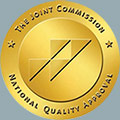Alcohol is a central nervous system depressant that works by slowing down vital functions in one’s body.
The feelings elicited when an individual ingests alcohol occur because of the way the substance interacts with one’s neurotransmitters. The National Institute on Alcohol Abuse and Alcoholism (NIH) asserts, “Alcohol interferes with the brain’s communication pathways, and can affect the way the brain looks and works.” When an individual has habitually abused alcohol, one’s body becomes accustomed to functioning with it present in his or her system. When alcohol is absent from one’s system, the body will react accordingly, and withdrawal symptoms will ensue. The duration and severity of the symptoms will depend on a variety of contributing factors. These can include: the personal health history of the individual, the average quantity of alcohol consumed each time, the potency of the alcohol, one’s alcohol tolerance level, the frequency of one’s alcohol consumption, and if the individual simultaneously used other drugs.
Detox & Withdrawal Timeline
Every individual is different and will experience somewhat unique withdrawal symptoms when it comes to alcohol detox. However, the National Library of Medicine provides a general timeline, which divides the withdrawal symptoms from alcohol, respectively, into the following four stages:
Stage 1: six-twelve hours after one’s last drink
- Depression
- Mood swings
- Insomnia
- Excessive sweating
- Headache
- Nausea
- Vomiting
- Anxiety
- Stomach pain
- Shakes / tremors
Stage 2: twelve to twenty-four hours after one’s last drink
- Hallucinations
- Dehydration
- Mental confusion
- Irritability
- Increase blood pressure
- Irregular heart rate
- Loss of appetite
Stage 3: twenty-four to forty-eight hours after one’s last drink
- Low blood sugar
- Intense mood swings
- Grand mal seizures—about four percent of people withdrawing from alcohol can experience grand mal seizures.
Stage 4: forty-eight hours to seven days after one’s last drink
- Depression
- Restlessness
- Confusion
- Delirium tremens
- General physical discomfort
- Symptoms may begin to taper off
The withdrawal symptoms that accompany each stage of withdrawal from alcohol abuse will differ for everyone.
There are a variety of contributing factors that can affect the severity of withdrawal symptoms, the duration of withdrawal symptoms experienced, as well as which withdrawal symptoms manifest. Due to some of the more severe withdrawal symptoms that commonly present when detoxing from alcohol abuse, it is advised to undergo a supervised detox to ensure one’s safety throughout the process.
For Information and Support
Contemplating detox can be a very challenging time. Before any individual can begin to work on the underlying issues contributing to their substance abuse problem, they must be separated from the substances in their systems. If you are concerned for yourself or a loved one regarding substance abuse, and/ or addiction we recommend reaching out for help as soon as possible. The earlier you seek support, the sooner you and your loved ones can return to leading happy, healthy, and fulfilling lives. Sherwood Detox offers a stand-alone detox program. For additional information on detox, please do not hesitate to contact us at: 818-626-9959 or feel free to email us anytime. One of our trusted counselors is available to talk and discuss how we can best support you on your journey.








